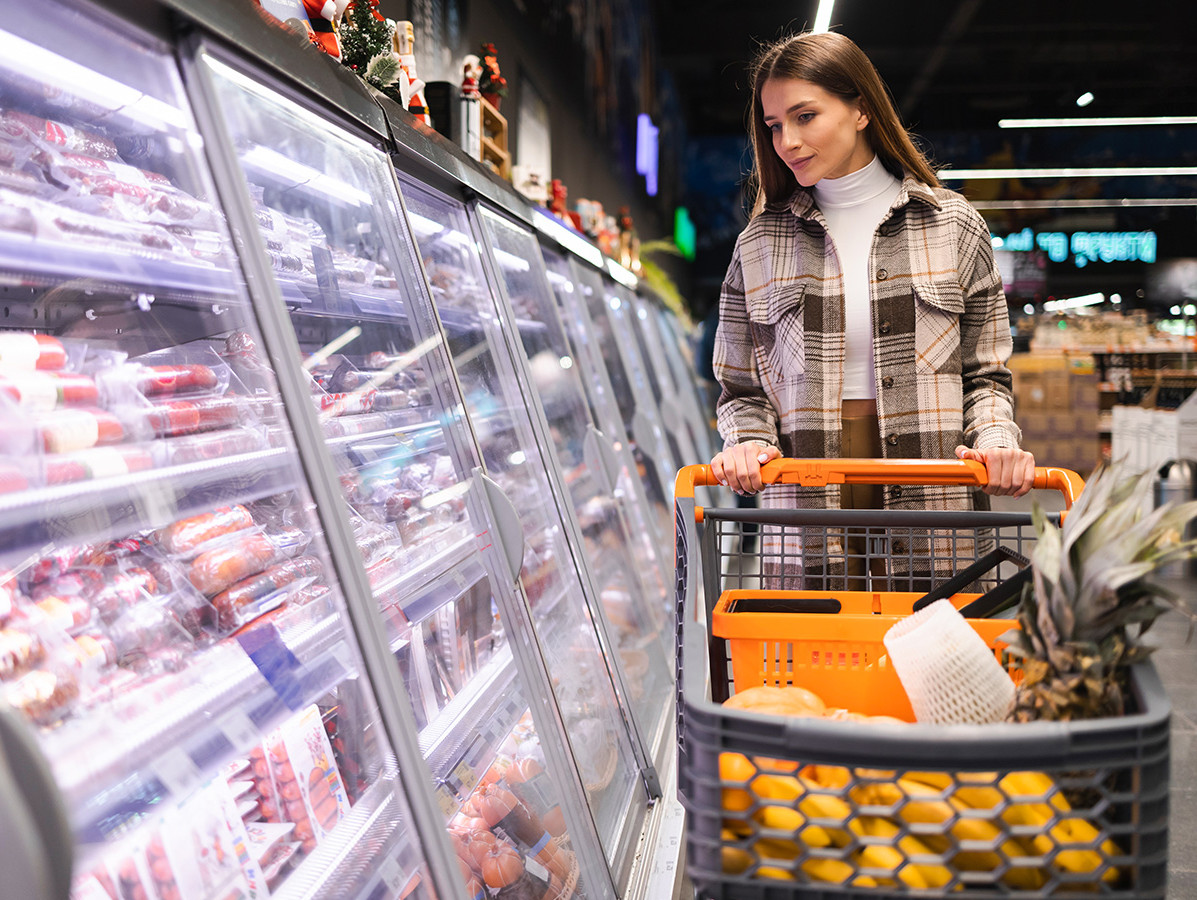
There has been a significant drop in meat sales in supermarkets over the past year. First of all, this is a correction to last year's supermarket run. In addition, prices are considerably higher, while consumers have less to spend. Finally, it may be due to consumers' desire to eat meat less frequently.
Figures from research firm IRI show that 7 per cent less meat was sold in supermarkets in the first nine months of last year. This is partly due to a correction to the supermarket run in 2020 and 2021 due to corona measures. Indeed, in these years, supermarket meat sales rose sharply, and sales through the catering channel were lower. The decline in supermarket sales may have been offset by an increase in sales through the catering channel. Yet there is more to it than just a shift of channel. Indeed, meat sales through supermarkets in the first half of 2022 were below the level of the first half of 2019. With this, meat sales through supermarkets do not seem to be returning to pre-corona levels. Sales volumes of chicken in supermarkets fell less than the average for all types of meat.
The decline in meat through supermarkets may be due to a group of consumers exchanging meat for plant-based products in supermarkets. On the other hand, the decline in meat sales could also be a price effect. Consumers with smaller wallets choose to buy less meat or smaller portions.
The development of the livestock population in the Netherlands is important for meat processors. For poultry, last year was the biggest bird flu wave ever, with negative consequences for poultry farmers' production. In addition, supermarkets are switching to selling only Beter Leven 1 star. This requires producers to pay more attention to animal welfare and sustainability, but due to the limited available barn space in the Netherlands and the difficult licensing process, this puts further pressure on poultry stocks. In addition, it is still unclear what the consequences are going to be of the buy-out schemes related to the nitrogen issue. ABN AMRO expects broiler numbers to decline by 15 to 25 per cent through 2025.
For the pig farming sector, ABN AMRO expects the number of animals to decrease by about 10 to 20 per cent over the next 10 years. This decline will already start in 2023, with the number of breeding sows expected to fall more sharply. While this will not immediately lead to a lower number of slaughters here in the Netherlands, it will lead to lower exports to Germany, among others.
Source: ABN AMRO